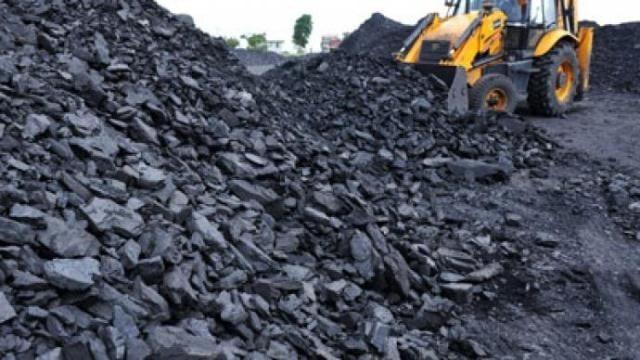Price vulnerability: Coal importer sees the dark side as price tumbles
Lucky Commodities CEO not optimistic, says trading companies are struggling

About 3.5m tons of coal is imported every year to meet the country’s demand. The rest is met from coal mines in Balochistan. PHOTO: FILE
The uncertain coal price in the international market and defaults of mining companies have made Pakistani traders wary of taking too much exposure despite the increase in demand in the energy-starved country, officials said.
Export price of South African and Australian coal that used to be over $100 per ton in 2011 has continuously declined and now stands within a range of $50 to $55 a ton.
Price vulnerability in a falling market has forced some trading companies to shut operations and at least one big trader is struggling to recover a loss he incurred when price of a shipment went down and customers backed off.
Thar coal — better late than never
“I don’t see price recovering for at least in the next three to four years,” said Lucky Commodities CEO Tahir Ahmed. “So we are not aggressive at all and would just try sustaining the volumes we are currently handling.”
Pakistan meets around half of its coal demand by importing around 3.5 million tons a year. The rest is met from coal mines in Balochistan.
Lucky Commodities, a subsidiary of Yunus Brothers Group (YBG), started importing coal in 2013 primarily for its sister concerns.
“Our own group of companies are the largest end users of coal. Our in-house consumption is approximately a million tons annually, so, we thought why shouldn’t we get into this business?”
Our entry was also relatively easy since we had been using coal for more than a decade,” Ahmed said.
YBG companies including Lucky Cement - the largest producer of key building material in Pakistan - and ICI Pakistan have switched over to coal from gas to support margins and avoid supply disruption.
Almost all cement manufacturers have switched over to coal in the past decade as output of gas, which has fuelled the economy for decades, stagnated.
Units in other industries like edible oil, textile, sugar and chemicals have also moved over to coal, which is also comparatively cheaper than furnace oil and gas.
Entry of Lucky Commodities in the market encouraged other business groups to follow. But most of them have closed down. “To be honest, we are surviving because the major chunk of business comes from our own companies,” said Ahmed.
“It’s not an easy trade at all, especially when the price of commodity is constantly on a declining trend. Importers are losing money as when the price goes down, we take the hit.”
Thar coal mine and power project: Government finally gives sovereign guarantees
Pricing is not the only worry for people in the coal import business. Government has gradually increased taxes on coal import and its sale. A trader pays 5% custom duty, 5% withholding tax, 17% sales tax and 3% value added tax.
“At the end of the day, it is the consumer who is going to pay all of this,” said Ahmed. “Government must realise that exports are falling. Coal is used as a fuel by various export oriented industries, it doesn’t make sense to use it to raise revenue.”
He insisted that margins on coal trade were minimal. “This is a volume business. More taxes will be generated when the industry makes a profit by using cheaper resources, “he said. Middlemen who supply coal to industries in Punjab say the importers have also taken away the market share from local miners who are least bothered about controlling costs.
“There is no pricing mechanism. Local mine-lease holders still think they would hold on to their customers who have become very price sensitive,” said a trader.
But Seatrade Group Chairman Najib Balagamwala - another major coal importer, is bullish on the mineral’s demand. “In two to three years’ time as coal-fired power plants come online, Pakistan would be importing 6 to 7 million tons a year,” he said.
Published in The Express Tribune, November 14th, 2015.
Like Business on Facebook, follow @TribuneBiz on Twitter to stay informed and join in the conversation.



















COMMENTS
Comments are moderated and generally will be posted if they are on-topic and not abusive.
For more information, please see our Comments FAQ